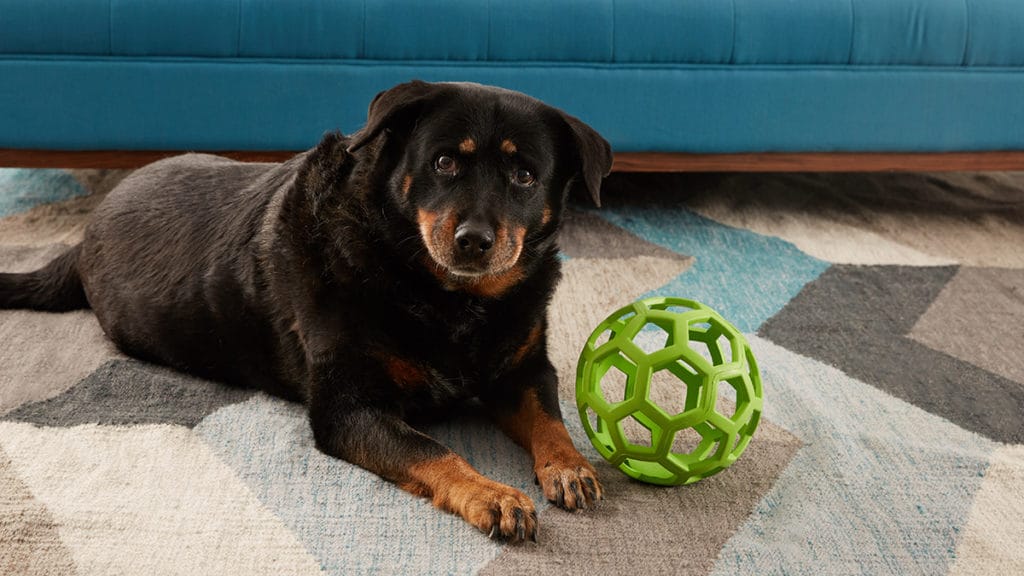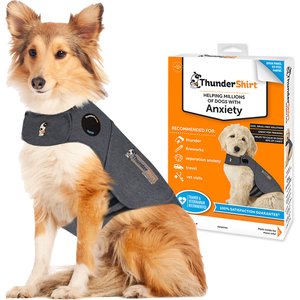It’s always difficult to leave your pet behind when you are leaving on vacation, but sometimes it is necessary. To help you and your pup endure your time apart, it is important to plan ahead and make sure everything is organized so that when you leave, you know your pup is well-cared for.
Some people might choose to leave their pets with a family member or a pet sitter, and others may have someone come and take care of their pet, but if you are choosing to board your pet at a pet hotel or kennel, there are some things you should know first.
To explain some of the “do’s” and “don’ts” of boarding your pet, we talked to Aysil Brimhall, owner and operator of Furs and Feathers Resort in West Palm Beach, Florida.
Do Your Research
Before you choose where to send your pet for boarding, it is vital to do some thorough research to make sure you find the right one. Brimhall says, “It is a different environment for the pets, so you need to do your homework on each potential pet resort to make sure they will be as comfortable as possible.” She recommends calling up each pet boarding facility and asking lots of questions about their services and what your pet’s itinerary will be like during their stay. If you have a high-energy dog or an anxious dog, you will want a facility that offers doggie daycare, where your pup will get to go out and play with either the staff or other dogs. This will help reduce pent-up energy that could turn into boredom or anxiety and lead to destructive behavior.
Even if you have a cat, you should still discuss with the staff at the pet hotel what kind of toys and interactions they provide for your feline during the day. The change in environment can be stressful for cats, so it is always best to ensure your cat will receive regular stimulation throughout the day. (Don’t forget to ask if pet daycare is included in the price of boarding or an additional cost. You don’t want to be caught off guard when you receive the bill.)
Brimhall also recommends touring the facility and meeting the staff, if possible. That way you can discuss your pet’s specific needs and make sure that they can accommodate them appropriately. She further remarks, “If your dog suffers from sound aversion issues and requires extra care during thunderstorms or loud events, you should discuss this with the staff and ask them what strategies they have in place to help pets with those type of issues.”
More importantly, Brimhall emphasizes, “If your pet has special medications that they are dependent on, it is imperative that you discuss this with the staff ahead of your pet’s stay.” Brimhall explains that at Furs and Feathers, they have a few insulin-dependent dogs that frequently come to dog daycare, so they make sure to discuss with the dogs’ parents what type of emergency measures they should take if something were to happen. They also make sure to have their medication on hand at all times, as well as extra in case of extenuating circumstances.
Make Sure Your Pet is Prepared
There would be nothing worse than showing up the day you are leaving and dropping off your dog, only to find out that they do not have the proper vaccinations for their stay. That’s why it is always important to check with any pet boarding facility about their vaccination requirements and to make sure your pet is up to date and in compliance. Most dog hotels will require a Rabies vaccine, DHPP vaccine (Distemper, Hepatitis, Parvo and Parainfluenza) and a Bordetella vaccine. For cats, the most commonly required vaccinations are a Rabies vaccine, FVRCP vaccine (Feline Viral Rhinotracheitis, Calicivirus and Panleukopenia) and a Leukemia vaccine if your cat goes outdoors. Some pet resorts may require additional vaccines or proof of flea and tick prevention and heartworm prevention, so it is always important to check with them!
Keep Your Goodbyes Quick and Happy
When it comes to dropping your pet off, don’t make a big fuss. While you may be sad or anxious about leaving your pet in a pet boarding facility, it is important to maintain a happy and calm demeanor. Brimhall explains, “It is important not to coddle your pet or do a prolonged goodbye when leaving them at a pet hotel. Pets can sense your anxiety and change in behavior, and it can make them feel anxious and nervous about what is happening.” She elaborates by saying that if you baby your pet when leaving them, it can trigger separation anxiety and cause destructive behaviors that make pet boarding a stressful experience for them. Brimhall recommends that when you bring your pet in, you should just hand them over to the staff and show excitement so that they associate being dropped off with something good happening.
Discuss Your Pet’s Needs With the Staff
Despite having already talked with the staff about your pet’s needs and the procedures in place to make sure your pet is getting the proper care, it is still essential to go over your pet’s food, medications and any behavior quirks that your pet may have. You want to make sure that you have clearly communicated everything your pet needs and that the staff doesn’t have any questions for you.
-
Food
Brimhall has a few recommendations when it comes to preparing your pet’s food for the pet resort. While she acknowledges that if your pet is staying longer than 5-7 days, this may not be feasible, “It is nice to have your pet’s food pre-portioned into little plastic baggies so there is not a doubt about how much food your pet should be getting.” To help portion your food, you can use the OurPets Metal Pet Food Scoop to ensure that your pet is getting exactly the right amount of food. Brimhall’s golden rule for any pet hotel stay is, “Pack extra!” You never know what could happen in the future; travel plans can change, flights can get canceled and accidents happen, so it is better to be prepared and always pack some extra food for your pet.
Another important tip Brimhall has for those boarding their pets is to let the staff know if your pet is in the middle of a transition in food or has digestive issues. That way, the staff knows that if your pet has irregular stools or diarrhea, it is not an immediate cause for concern. The staff can also keep an eye on your pet’s stool to monitor the progression of these issues and take the appropriate actions to help your pet.
Brimhall also emphasizes the importance of informing the staff about any allergies your pet might have or food sensitivities. At some facilities, they will give their tenants treats throughout the day, so if your dog is allergic to a certain type of food or treat, or is on a diet, you should let them know ahead of time.
-
Medication
Brimhall stresses the importance of thoroughly going over your pet’s medications with the staff when dropping your pet off. She recommends having clear instructions along with clearly labeled bottles, and, if you prefer, you can use a Monday-Sunday pill organizer to make sure your pet gets their medicine at the appropriate times. Once again, she states the pet resort golden rule, “Pack extra!” The last thing you want is for your travel plans to get held up and for your pet to run out of their much-needed medication. It is always better to err on the side of caution.
-
Special Items
If you have packed some essential, special items that your pet may need in certain situations, or for their comfort, you should notify the staff about them and clearly explain under which circumstances they are to be used. Examples of this can include a ThunderShirt for your dog or cat, or any dog calming chews or dog calming collars they may need at night or during loud events.
-
Behavior Quirks
If your pet has behavior quirks—like being food protective, toy protective, nervous, having separation anxiety or social anxiety—the staff can make sure to keep a special eye out for your dog during playtime to make sure they are safe and never put in an uncomfortable situation.
Bring Him the Comforts of Home
Now that we’ve gone over the important stuff, it’s time to discuss what comforts from home you should bring for your pet. For either cats or dogs, it is nice to bring something for them that smells like home. It can be a special blanket that they always lie on, like the American Kennel Club Fleece Pet Blanket, or you can bring them a T-shirt or towel that smells like you and their home. These comfy items will give them something to cuddle at night, and they have a familiar scent to ease their stay in a new place. Brimhall did specify, “We do not recommend bringing in big, bulky dog beds or anything that is filled with feathers or stuffing. These items are difficult to clean, and if your dog gets anxious or is destructive, they can create a huge mess and cause you to lose your dog bed.”
Brimhall also gives a few recommendations when it comes to toys. While your dog’s favorite toy may be a fluffy stuffed one, Brimhall advises against bringing that toy with them to dog boarding. “Some dogs may have stress-related habits while they are boarding; this means that they could destroy their favorite toy just out of nervous energy,” explains Brimhall. For toys that are appropriate for dog boarding, she recommends a Nylabone Dental Chew toys or elk antlers. These dog chew toys allow them to productively take out their nervous energy in a way that doesn’t destroy their kennel, bed or favorite plush toys.
For your kitty, you can be more lenient about the cat toys you pack for them. Sometimes a plush toy like the Doggles Sushi Crab Cat Toy is plenty. You can also feel free to pack more interactive toys for the staff to use to play with your feline friend.
Enjoy Your Trip!
As long as you have properly researched and prepared for your pet to go into boarding, you can relax knowing your pet is enjoying their new adventure at the pet resort. You can leave your contact information with the staff and ask them for updates, but if you are a particularly attached pet parent, then Brimhall suggests to “look into a pet hotel that offers daily report cards. At Furs and Feathers, we send home a daily report card with photos and little tidbits about the pet’s day, so that every pet parent can rest assured their pet is having fun!”

Kendall Curley, BeChewy Editorial Assistant
As a former Connecticut resident, Kendall is coming to terms with the lack of seasons in Florida by gaining an appreciation for all the activities that the Florida climate allows year-round. When she is not hard at work at Chewy, she can be found going on adventures with her dog, Pip, or going horseback riding with her friends. She is an avid fosterer of dogs and spends an inordinate amount of time picking dog hair off of her clothes and belongings.
Share:
















